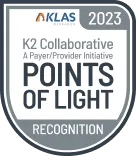
In our Ecosystem Explorer Series, we interview leaders from organizations who are advancing compliant access to health data. Today’s interview is with Jeremy Meade, VP Marketing Data Product, Data Operations, and Analytics at Experian.
With over 15 years of experience in marketing data, Jeremy has consistently led data product, engineering, and analytics functions. He has also played a pivotal role in spearheading the implementation of policies and procedures to ensure compliance with state privacy regulations at two industry-leading companies.
Experian is a global information services group specializing in credit reporting and credit scoring, as well as marketing and decision analytics. Experian Marketing Services delivers privacy-forward data and insights to help brands meaningfully connect with people. Experian sets new standards in data management, usability, and measurement to thrive in this evolving ecosystem.
Thanks for being here today! Starting with the basics, how do you define “consumer data” in the context of healthcare?
In this context, I define "Consumer Data” as any descriptive data about a consumer that is, critically, not governed by HIPAA. This can include data describing attributes about a consumer such as access to transportation or the area in which they live such as Census data.
Why is consumer data useful for healthcare research? Could you share the common use cases and any success stories where de-identified consumer data contributed to a research project?
As we all expect, healthcare companies maintain records about a consumer’s health and conditions. They often lack the information to personalize the experience or understand the full view of a patient's journey. For example, if a patient struggles to make it to appointments due to access to transportation, perhaps they could be supported by offering telehealth appointments or appointment times that better align with when their support is available. Understanding trends with patients can improve the ability to care for them and understand the environment most conducive to supporting them. Similarly, research projects benefit from consumer data through deeper insights into the people, not just as a patient but as a whole person.
With tokenization widely accepted across the health ecosystem, we can compliantly connect consumer data with electronic health data or claims data to develop these full 360º views of patients to help facilitate better decisions.
How is consumer data sourced and curated? Are there data quality standards that Experian establishes for consumer data, and how do you ensure your sources and methods meet the bar?
Experian leverages consumer data through many sources, including public records, partnering with data providers, and leveraging data from other Experian businesses where allowed by regulations and privacy policies. Any data that Experian collects, creates, or provides must align with Experian’s Global Data Principles, including a focus on Security, Accuracy, Fairness, Transparency, and Inclusion. This includes internal model governance reviews, the standard process for reviewing sources, including compliance and legal, and a standard process for bringing new concepts to market that test the concept against Experian standards.
When it comes to linking consumer data with real-world data, are there certain combinations of data types that are especially valuable for researchers? What information gaps does consumer data fill with those data types?
Regarding consumer data, the volume and variety can be overwhelming. Simply acquiring the data is not enough. Researchers need strong partners to help them understand the data and enable them to turn the data into valuable insights. Researchers are frequently interested in ethnicity, access to care (including transportation and financial), and information about the areas in which the consumers live, such as Experian’s Census Area Projection Estimates (CAPE). Experian goes beyond providing census data connected to consumers by providing updated estimates of the data based on other real-world data. The full census data is only provided once every 10 years; CAPE provides access to data that addresses the changes in between census years.
Similarly, consumer data can provide insight into information about consumers’ experiences: changes in their personal situations beyond health, such as the purchase of a new home, moving to a new location, or a significant change in income. It is about providing a 360º view of a consumer and reducing potential blind spots that researchers are not aware of and, therefore, that are not considered in the topic.
In recent years, consumers and lawmakers alike have pushed for greater consumer control over their data. How have laws such as GDPR, HIPAA, and the Consumer Privacy Act changed the consumer data landscape?
The additional focus on privacy has created positive change for both consumers and businesses. Consumers are gaining more control over their data and, through additional transparency around the use, are gaining a deeper understanding of the positive uses. As with any change, it is not without challenges, but challenge also drives innovation. A key challenge area for many has been sensitive personal information, notably reduced access to ethnicity-related data. This change is causing many to focus on alternative ways to support their DE&I initiatives. With reduced access to data, companies need to find alternative ways to measure their effectiveness and ensure inclusive research projects.
Digging deeper on that, individual privacy is a top priority for organizations that collect or work with consumer data. At the same time, data utility is also important for healthcare research. What’s Experian’s approach to privacy with consumer data, and how do you navigate the evolving landscape of privacy regulations like HIPAA and CCPA?
Experian’s heritage is a data company functioning within a regulated environment. We have strict policies around the collection and use of consumer data, along with a focus on “data for good.” The regulatory changes have only reinforced these policies for Experian and raised the bar for everyone. Experian supports the rights of consumers to choose across all states. Any new data or new use of data requires review and approval from Experian compliance and legal to ensure we are aligned with the most recent changes in a quickly evolving environment. Experian has taken additional steps to ensure that we can support organizations through de-identified data and ensure that data that we provide, independently or in combination, cannot be used to re-identify consumers. This allows us to support research without increasing the regulatory risk for the research teams.
Looking ahead, what are some exciting trends or developments with consumer data that you think could have a major impact on healthcare?
The expansion of consumer data in healthcare has a real opportunity to improve patient experiences while respecting their privacy. This creates the opportunity for deep partnerships between companies that are willing to stand behind their data and solutions. This will be done via the expansion of de-identified keys, clean rooms, and other privacy first solutions.
Thanks for the interview. Any recommendations for our readers if they want to learn more?
Visit our website to learn more about Experian Marketing Services and how you can tap into the world’s largest consumer database to improve your marketing effectiveness.





.svg)









